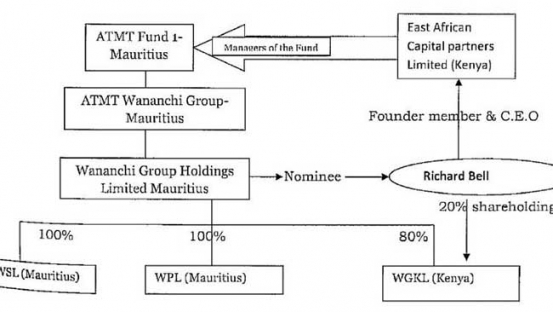×
The Standard e-Paper
Fearless, Trusted News

Kenya Revenue Authority has told Richard Bell, the billionaire owner of Zuku, to take responsibility for his various companies in a Sh3.4 billion tax fraud case.
An affidavit filed in court last week claims the Briton owns a majority stake in Wananchi Group Kenya and three other Mauritius-based ‘virtual’ firms that have been receiving billions of shillings from the Kenyan business.